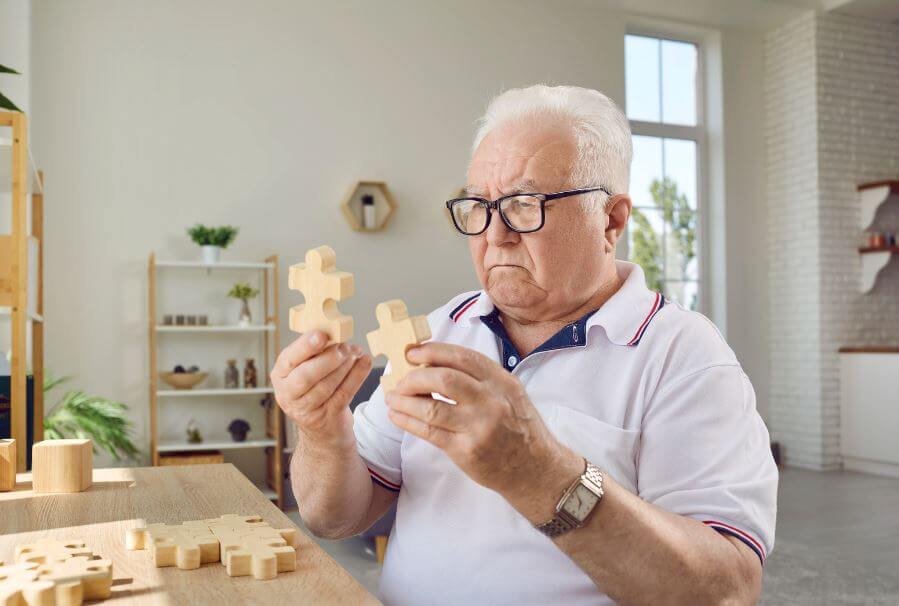
Engaging in stimulating activities can help people with Alzheimer’s maintain their cognitive function, improve their mood, and enhance their quality of life. Here are some stimulating activities that your loved one with Alzheimer’s can do at home:
- Arts and crafts: Activities such as painting, drawing, and coloring can help improve creativity, fine motor skills, and cognitive function. You can also encourage your loved one to create a scrapbook or memory book.
- Music: Listening to music, playing instruments, or singing can be a great way to stimulate the brain, reduce stress, and improve mood. Consider playing your loved one’s favorite songs or creating a playlist of songs from their youth.
- Exercise: Exercise can improve physical health and cognitive function. Encourage your loved one to take a daily walk or participate in low-impact exercises such as yoga or stretching.
- Puzzles and games: Puzzles and games can help improve cognitive function and memory. Consider playing simple board games, card games, or doing jigsaw puzzles together.
- Cooking and baking: Cooking and baking can be a fun and stimulating activity that can improve fine motor skills, cognitive function, and sensory experiences. Consider baking simple recipes or making meals together.
- Gardening: Gardening can be a relaxing and engaging activity that can improve mood and cognitive function. Encourage your loved one to tend to a small garden or indoor plants.
Remember, when engaging in stimulating activities with your loved one with Alzheimer’s, it’s important to keep the activities simple, engaging, and enjoyable. The activities should be tailored to your loved one’s interests and abilities, and should be done in a comfortable and safe environment.
For example:
Puzzles and games
Puzzles and games can be a great way to engage and stimulate the mind of someone with Alzheimer’s disease. Here are some examples of puzzles and games that may be appropriate for an Alzheimer’s loved one:
- Jigsaw puzzles: Jigsaw puzzles can be a great way to exercise the brain and improve problem-solving skills. Start with puzzles that have large, simple pieces, and work your way up to more complex puzzles as your loved one’s skills improve.
- Card games: Simple card games like Go Fish or Uno can be a fun way to engage your loved one and improve their memory and concentration skills.
- Matching games: Matching games, such as memory matching games, can help improve your loved one’s memory and cognitive function. You can create your own matching games using pictures of family members or familiar objects.
- Word games: Word games such as crossword puzzles, word searches, and Scrabble can be a great way to improve language skills and engage the mind. Choose games with large print and simple words to make them more accessible.
- Coloring books: Coloring books can be a relaxing and enjoyable activity for someone with Alzheimer’s disease. Choose books with simple designs and large print.
It’s important to choose puzzles and games that are appropriate for your loved one’s skill level and interests. Be patient and provide plenty of encouragement and support to help them enjoy the activity.
Speak to us on how we can help, or learn move at Alzheimer’s Society Canada.

